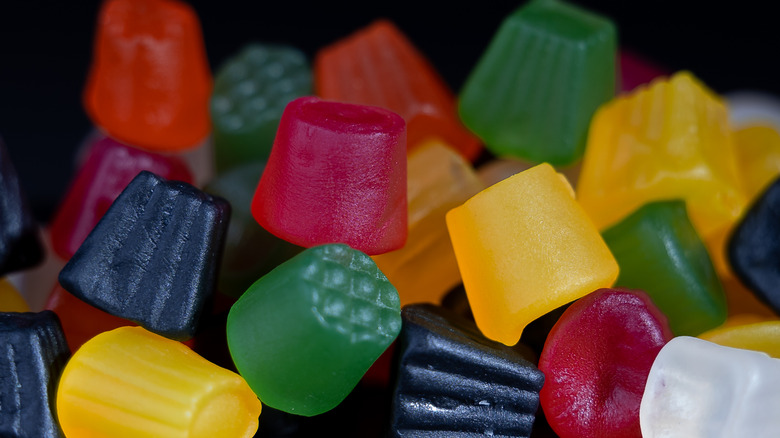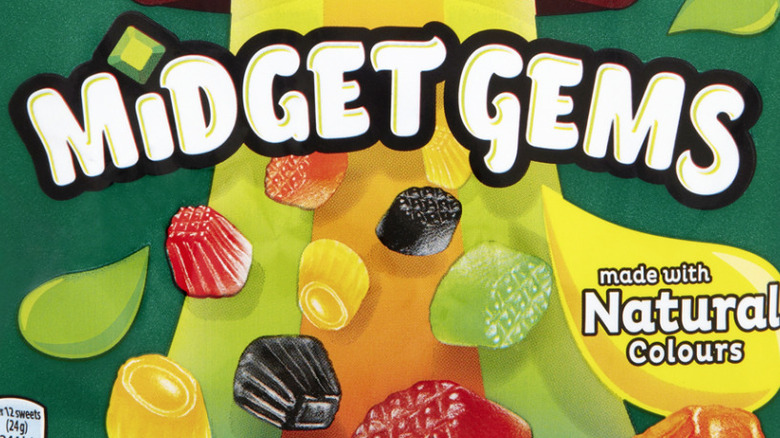Marks And Spencer Finally Renamed This Offensive Candy
For those of us not hip to all things British, Marks and Spencer is a big retailer. Big. They've been around for over a century and describe themselves, per their website, as a "British value-for-money retailer focused on own-label business," with more than 1,500 stores and 100 websites around the world, employing 70,000 people and serving close to 30 million people annually. Adele loves them. They are also apparently, per The Guardian, the most popular destination in the UK for underwear.
You'd think that such a large, longstanding retailer would be hip to inclusivity, which the Diversity Movement describes as understanding the ways that language (often unconsciously or unintentionally) can dishonor people's identities. In 2015, LPA, the world's largest dwarfism support organization, began advocating for the word "midget," (the "M" word to people of smaller stature) to be abolished. According to disability studies academic Dr. Erin Pritchard, the word is considered derogatory, even hateful, per Sky News. The term was attached to people with dwarfism — also known as little people — during the era of Victorian freak shows, and is roundly rejected today. While it seems Marks and Spencer is a bit late to the party, thanks to the efforts of Dr. Pritchard they have finally taken notice and will be rebranding their Midget Gems candies.
The "M" word is just not cool
Marks and Spencer's Midget Gems candies, which are made by the candy company Maynards Bassetts, will now be called Mini Gems (via The Independent). The candies, according to British Corner Shop, are little fruit-flavored chewy sweets (think Jujubees) that come in lime, pear, blackcurrant, apricot, and raspberry. The retail giant is reportedly the first to react to Dr. Pritchard's campaign to lose the word "midget," saying in a statement that the company is "committed to being an inclusive retailer." The new packaging will hit store shelves in May 2022.
Stateside, we've seen more than a few product rebrandings as we, as a society, become more aware of how insensitive language can affect people. The Diversity Movement offers tips for using more inclusive language, including being more thoughtful about imagery invoked by specific words, using universal phrases, putting people first, and asking if you are unsure about a word. Really, dropping the "M" word seems like a no-brainer. Good on Marks and Spencer for recognizing that.

